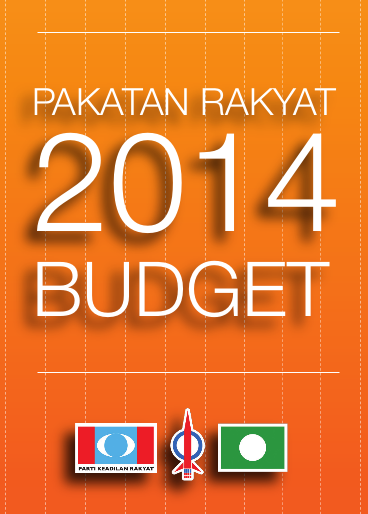Instead of high watermark for women’s rights, Najib’s hijacking of women portfolio proves to be an even lower point for women agenda
The launching of Pakatan Rakyat’s Women’s Agenda tonight is a historic event, as gender equality and empowerment of women to improve their social, educational, economic and political status must be accepted by everyone as part of human rights which must involve the commitment and challenge to everyone in the country.
Recently, women’s rights should have witnessed a highwater mark in Malaysia when the Women’s Minister is also the Prime Minister, but unfortunately, the opposite is the case – with women agenda reaching an even lower point with the hijacking of the Women Minister’s portfolio by a male – as if there are no eligible and qualified Malaysian woman for the post!
“Janji Ditepati” has recently been Najib’s favourite subject, but with Najib as Women’s Minister for the past six months, are women in Malaysia satisfied with “Promises Fulfilled” with regard to women issues and causes?
Do women in Malaysia feel safer from crime, whether in shopping malls, car parks, public streets or even in the privacy of their homes? The answer is a resounding “NO”, even with parents fearful about the safety of their underaged daughters following the recent spate of cases where judges made a mockery of statutory rape legislation to protect underaged girls.
The Malaysian government is fond of boasting about the achievements and status of Malaysian women in the international arena, particularly with regard to gender equality and women empowerment.
In actual fact, Malaysia is not in any leading position in the international context with regard to gender equality and women empowerment, as reflected by the lowly ranking of Malaysia in the 2011 Global Gender Gap Index report prepared by the World Economic Forum in Geneva.
Malaysia’s overall Global Gender Gap Index (GGPI) ranking, which is made up of three criteria firstly economic participation and opportunity; secondly, health and survival; thirdly, political empowerment, is a lowly No.97 out of 135 countries, worse than Philippines (8), South Africa (14), Cuba (20), Mozambique (26), Argentina (28), Sri Lanka (31), Nambibia (32), Guyana (38), Kyrgyz Republic (44), Kazakhstan (49), Thailand (60), Botswana (66), Bangladesh (69), Brunei (76), Albania (78), Armenia (84) and Indonesia (90).
Malaysia’s ranking in terms of women’s representation in government is the worst of all three criteria, ranked 115, behind Sri Lanka (7), Bangladesh (11), Philippines (16), India (19), China (57), Indonesia (61), Vietnam (76), Cambodia (78), Singapore (83) and Thailand (97).
Neighbouring and other Asian countries have had women as heads of state of government, like Indira Gandhi of India, Benazir Bhutto of Pakistan, Corazaon Aquino of Philippines, Megawarti Sukarnoputri of Indonesia, Yingluck Shinawatra of Thailand, Sheikh Hasina of Banglasdesh and Mrs. Srimavo Bandaranaike of Sri Lanka. But no women have risen to the top in Malaysia, whether at the federal or state levels, as no woman have ever been Mentri Besar or Chief Minister.
This gender gap must be rectified.
Malaysia should aim to be included in the top 50 countries in the Global Gender Gap Index and one way for the attainment of this objective is the implementation of Pakatan Rakyat’s Women Agenda if and when Pakatan Rakyat takes power in Putrajaya in the 13th General Election.
